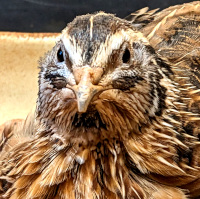Beginners Quail Quandaries. Getting started on your quail journey
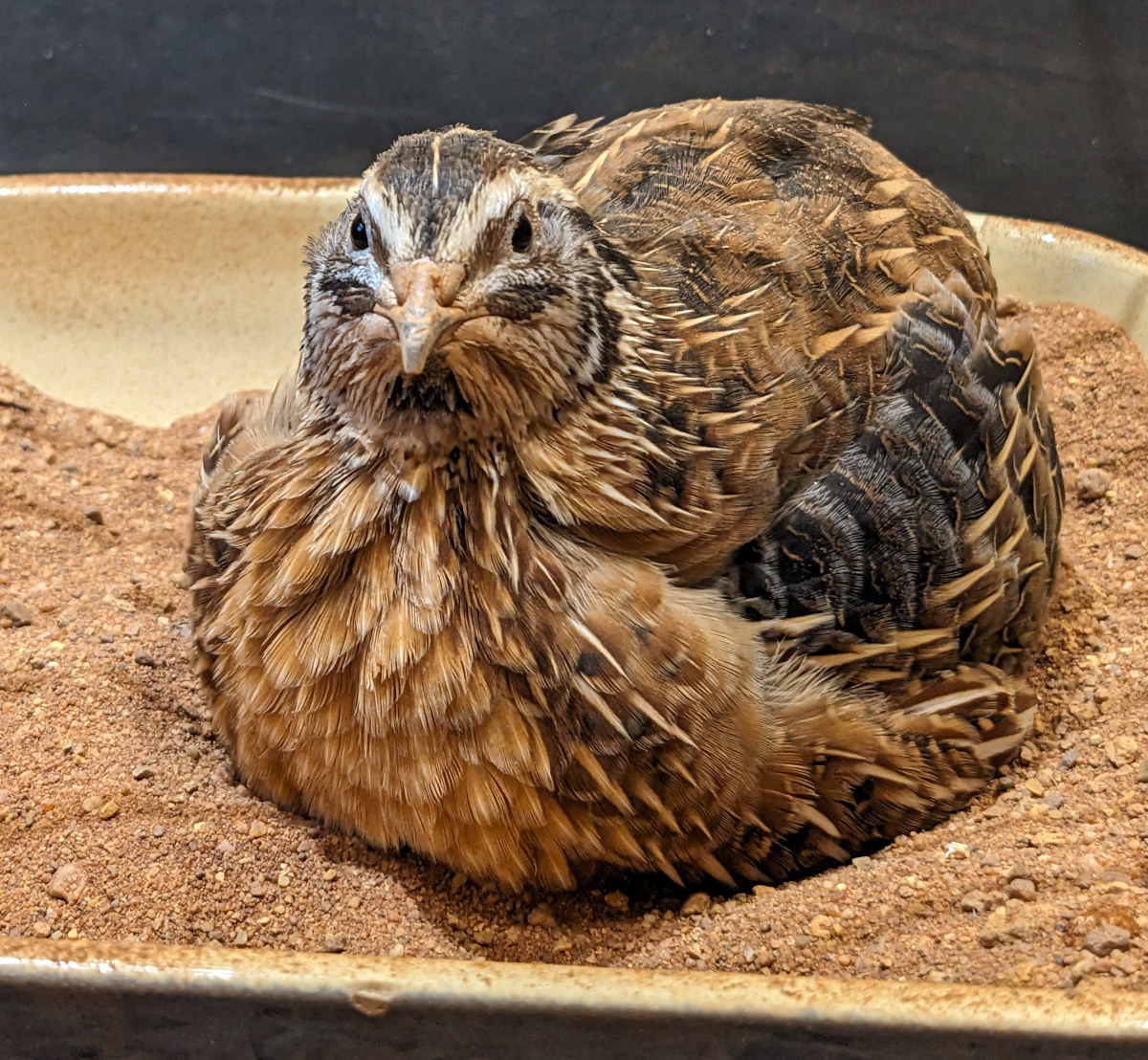
Raising quail can be a rewarding and enjoyable experience. In this beginners guide, I'll walk you through the basics of quail care, covering everything from selecting the right quail breed to creating a comfortable living environment for your feathered friends.
Table of Contents
I started quail keeping more out of curiosity than any other reason, I had kept chickens, ducks, turkeys and guinea fowl and wanted real experience to see if quail keeping is as easy as people say.
The first thing is to make sure you are allowed to keep Quail where you live.
Choosing the Right Quail Breed:
Before diving into the world of quail keeping, it's essential to choose the right quail breed for your needs.
Popular breeds for beginners include the Texas A&M quail, known for their docile nature and prolific egg-laying capabilities and high meat to bone ratio. This is the breed I chose for my first foray into quail although I have since added a few more breeds. The eggs can be up to 16 grams in weight and they have the biggest carcass of any domestic quail breed.
Other options, like the Bobwhite or Pharaoh quail, are also worth considering based on your preferences and regional climate. Choose breeds like Coturnix or Japanese for their laid-back nature and prolific egg production.
Start small:
A covey of five to six quail is perfect for beginners. You need to know if you will get on with small fowl and should plan an exit strategy before you begin if it doesn't work out for you.
Below: Start small with a few hens and one male to see if you like it.
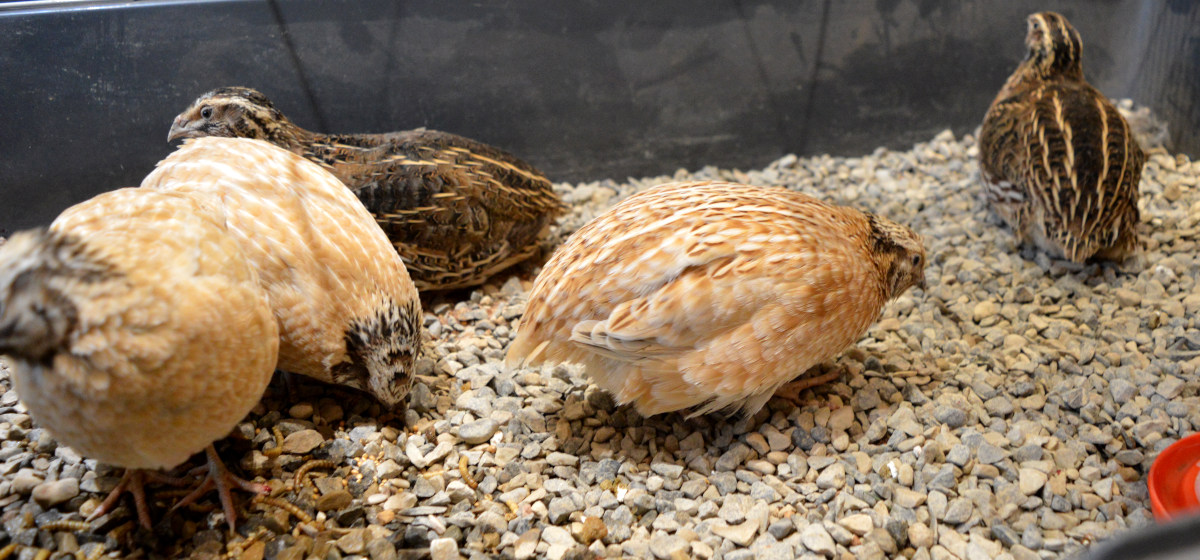
Remember, one male to five hens maintains peace in the covey. I made the mistake of keeping two males together and it ended very badly.
To obtain your first quail, check local breeders, hatcheries, poultry auctions, craigslist and eBay or Facebook group for healthy, vibrant birds.
Here are a few things to keep in mind when choosing where to buy quail:
- Reputation: Make sure the breeder has a good reputation and is known for producing healthy quails.
- Breeds: Decide what breed of quail you want to raise and make sure the breeder has that breed available.
- Price: Quails typically cost between £5 and £10 each.
- Location: Choose a breeder that is located close to you so that you can easily pick up your quails.
Setting up the Quail coop or habitat:
Creating a suitable living environment is crucial for the health and well-being of your quail.
Start by selecting a spacious and well-ventilated coop or cage. Quail coop and cages are often prefabricated and bought in towers or stacks but any secure coop that is dry and draught free will be suitable.
Quail coops do not need to be tall as they are ground dwellers that do not roost or fly much.
Ensure that the flooring is easy to clean, as quail droppings can accumulate quickly. Quail can be kept outdoors and on pasture but have no homing instinct and won't be able to free range.
Provide a comfortable bedding material such as sand, straw or wood shavings to keep your quail cosy. Sand is the preferred option as wild quail live in sandy environments are they are used to this as a floor in the living area.
Even though they do not use boxes like chickens to nest, quail should still be given a secure out of the way spot and a sandy nest to lay their eggs. A sand bath will complete the run.
Nutrition and feeding:
A well-balanced diet is essential for the overall health of your quail. I suggest the beginner opt for a commercial quail feed that contains the necessary nutrients, vitamins, and minerals.
Below: I have spent a lot of time finding out foods quail will eat.
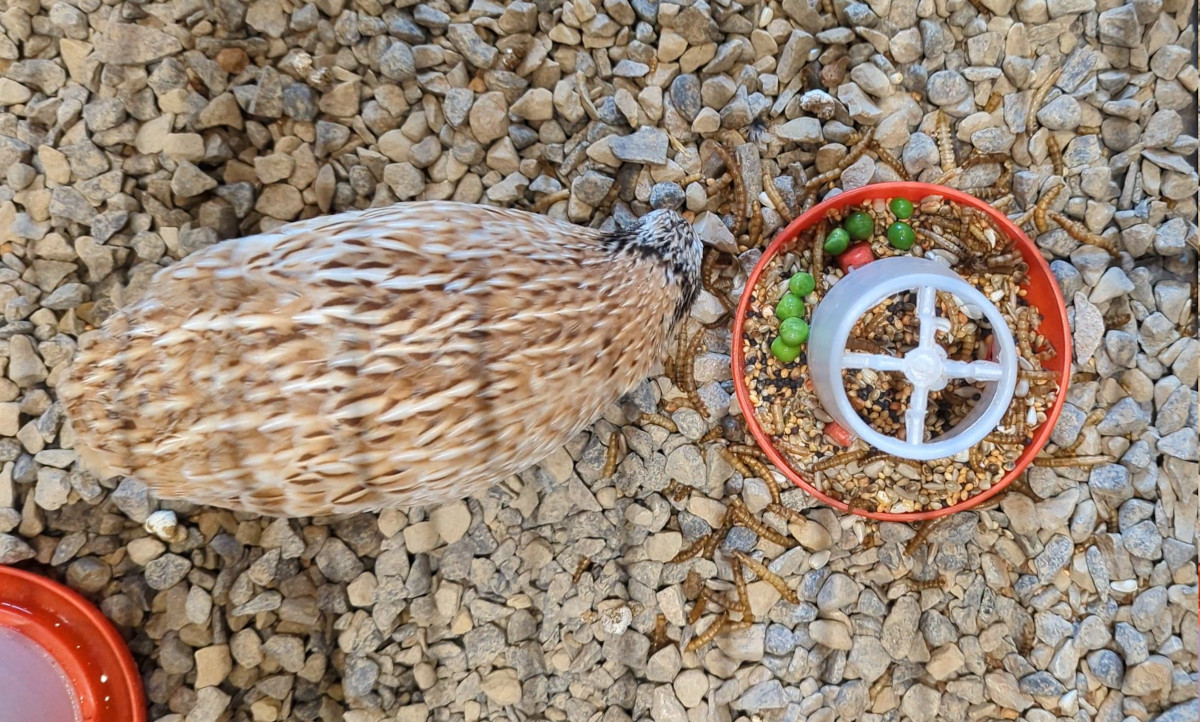
Quail food comes in starter for chicks and adult for the rest of the time.
Additionally, supplement their diet with grit and crushed oyster shells for calcium, particularly if you have laying hens. Pigeon grit is the best size for quail and is smaller than chicken grit.
Below: Teaching my baby quail chicks to feed and drink.
When you have got things running smoothly you can experiment a little with their diet.
Fresh water should always be available, and occasional treats like insects, mealworms or greens can be offered in moderation. Mine have never been that bothered by greens or shoots and prefer seeds and grains to fresh grass. Wild quail are not big grazers and neither are their domesticated cousins.
Healthcare and Disease Prevention:
Quail are surprisingly hardy, but a watchful eye is key.
Regular health checks are crucial to maintaining a thriving quail flock. Keep an eye out for signs of illness, such as lethargy, changes in appetite, or abnormal droppings.
Below: A dust bath is essential for their on going health.
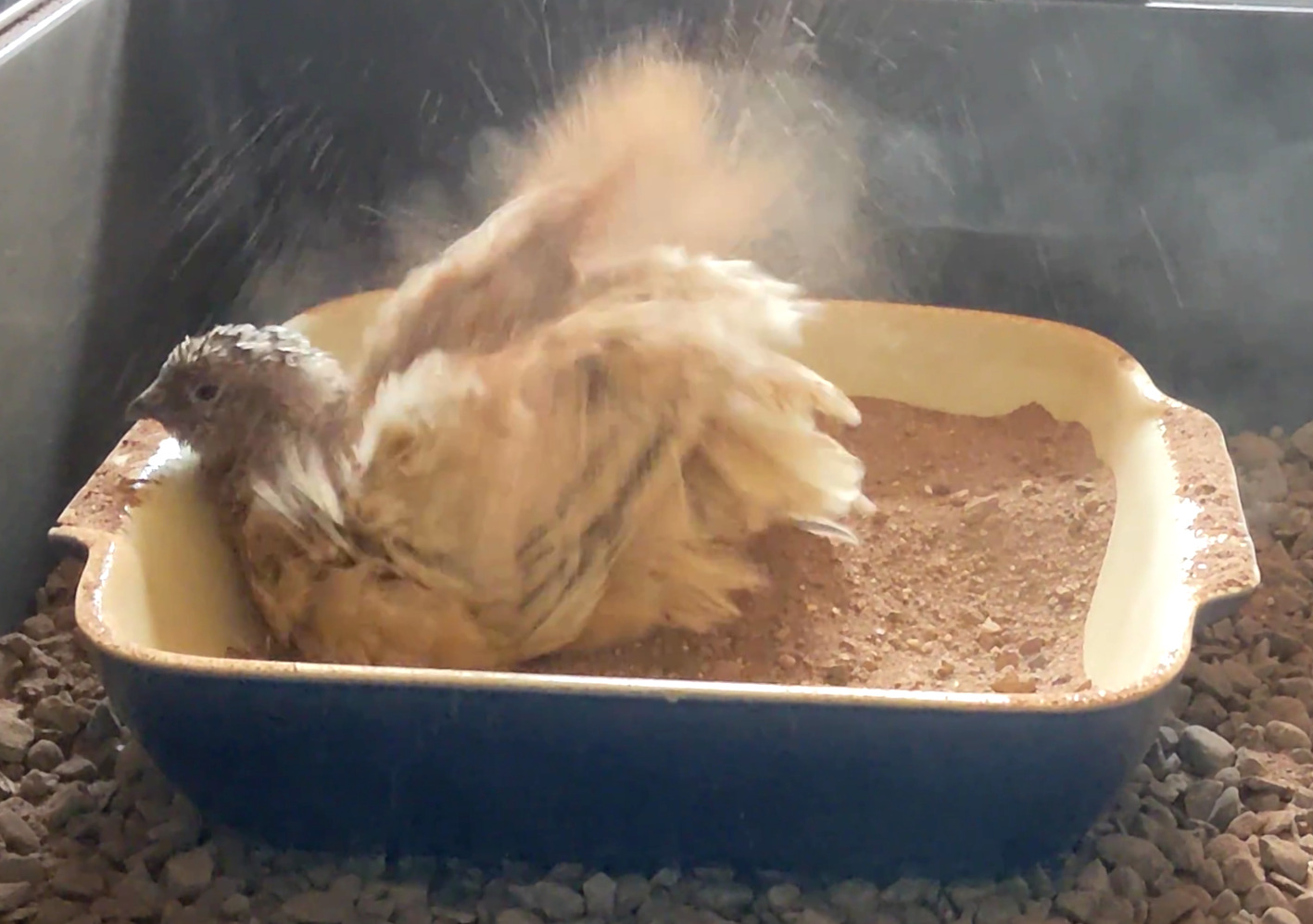
Keep an eye out for signs of illness like ruffled feathers, lethargy, or decreased egg production.
Keep a look out for pests and parasites on your birds and treat accordingly.
Consult with a veterinarian who specialises in avian care for routine check-ups and vaccinations. Preventive measures, such as maintaining a clean living environment and practising good hygiene, can go a long way in preventing diseases.
Breeding and Incubation:
If you're interested in expanding your quail family, understanding the basics of breeding and incubation is essential.
Below: A batch of quail eggs in my incubator.
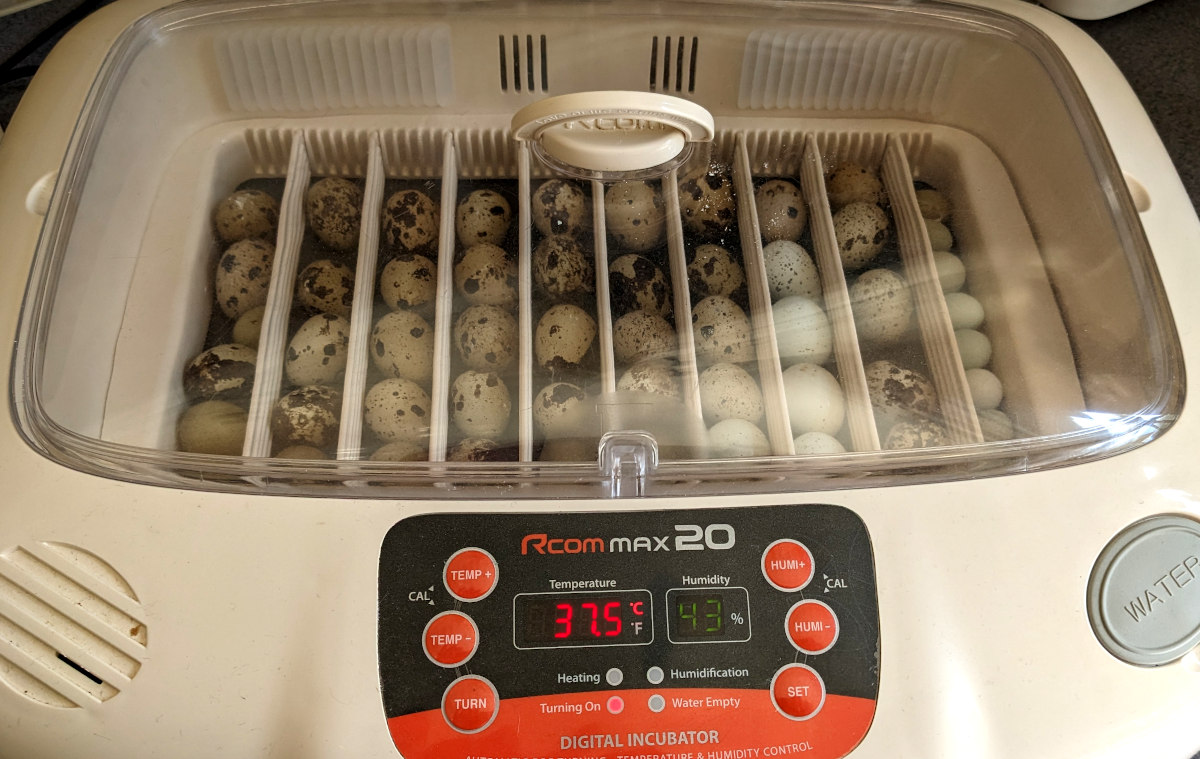
Make sure you choose the right quail eggs for the incubator, store them correctly and follow a step by step guide to incubating your quail eggs.
Provide a separate nesting area with suitable nesting material for your quail to lay eggs. Collect eggs promptly, as they can be delicate and prone to breakage.
There is a lot that can go wrong during incubation and hatching.
Invest in a reliable incubator and follow the manufacturer's instructions for successful hatching.
Handling and Taming Quail:
Quail can be a bit skittish, especially when they are first introduced to their new home.
While quail can be tamed to some extent they are generally never friendly animals like chickens or turkeys.
Below: A young quail being inquisitive and friendly.
Spend time sitting near the enclosure to allow them to become familiar with your presence.
Gentle handling from a young age can help in taming them. Avoid sudden movements and loud noises, as quail are sensitive creatures.
By choosing the right breed, providing a comfortable living environment, and offering proper care, you'll be rewarded with the joy of watching your quail thrive. Remember, patience and consistency are key when building a strong bond with your quail companions. Enjoy your quail-keeping adventure!
